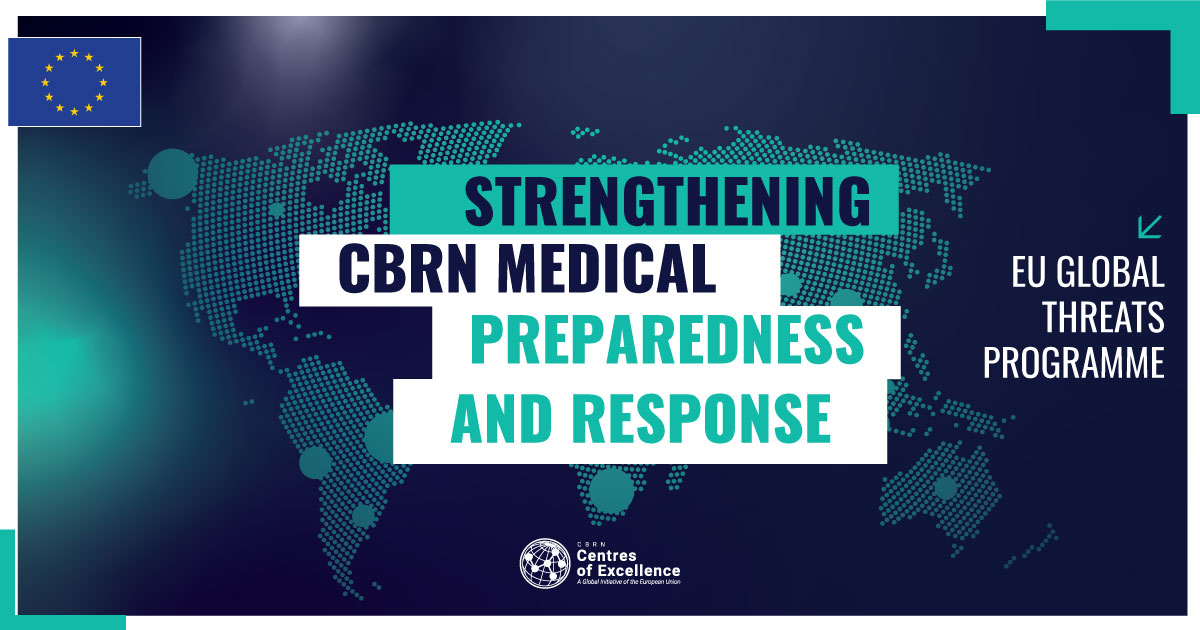
Context
When CBRN incidents occur, whether natural, accidental or deliberate in origin, a diverse group of stakeholders play critical roles in the rapid response to an incident. These include law enforcement agencies, emergency responders, and medical personnel, each with distinct roles, responsibilities, and priorities that can sometimes diverge or even conflict. To ensure a coordinated and effective response, it is essential to develop comprehensive, collaborative CBRN multi-hazard medical emergency preparedness and response plans, both strategic and operational. These plans should be supported by appropriate capabilities, with the ultimate goal of increasing survival rates and minimising the suffering of victims.
Overall objective
This project aims to strengthen CBRN medical emergency preparedness and response in Partner Countries in Southeast Asia (SEA) in order to minimise health consequences following CBRN incidents, crises and events.
Specific objectives
- To increase regional awareness and cooperation among stakeholders about the importance of CBRN medical preparedness, detection, response and related good practices.
- To enhance competency of national technical personnel involved in CBRN medical response with a focus on scene management, prehospital medical care, hospital medical care, emergencies at points of entry.
- To enhance national technical competency to investigate infectious disease events.
Concrete activities
Phase 1:
- Kick-off meeting with national, regional, and international stakeholders to introduce the project, enhance networking and exchange experience on CBRN medical emergencies.
- Visits by EU and Regional Expert Team to all Southeast Asia Partner Countries to consult on national medical emergency preparedness and response capacity and capability needs.
Phase 2:
- Preparation of train-the-trainer curricula based on consultation visits with Partner Countries.
- Regional exercise to raise awareness about CBRN medical response plans and good practices.
- Conduct tailored national trainings, covering scene management, prehospital medical care, hospital medical care and emergencies at points of entry.
- Support field and environmental (e.g. chemical, radiation, environmental) epidemiology in Partner Countries as part of the regional field epidemiology training programme (FETP) for strengthening epidemiology skills.
- Closing meeting with national, regional, and international stakeholders to revisit project outcomes and discuss sustainment and follow-up activities.
Expected results
- Enhanced awareness within the medical communities and other stakeholders of the various aspects on how to stabilise, process, transport and treat victims of CBRN incidents.
- A group of medical and first responder trainers established in each Partner Country, trained and supported to deliver training on various aspects of medical emergency response to CBRN incidents aiming to increase survival rates, reduce victim suffering, and minimise the risk of exposure to CBRN materials for first responders and medical personnel during treatment.
- Enhanced CBRN field and environmental epidemiology training programmes (FETP) in the region.
- Project duration
- 1 Nov 2023 - 30 Nov 2027
- Project locations
- BruneiCambodiaIndonesiaLaosMalaysiaMyanmar/BurmaPhilippinesSingaporeThailandVietnam
- Overall budget
- €3 500 000
- Threat area
- CBRN Risk Mitigation
